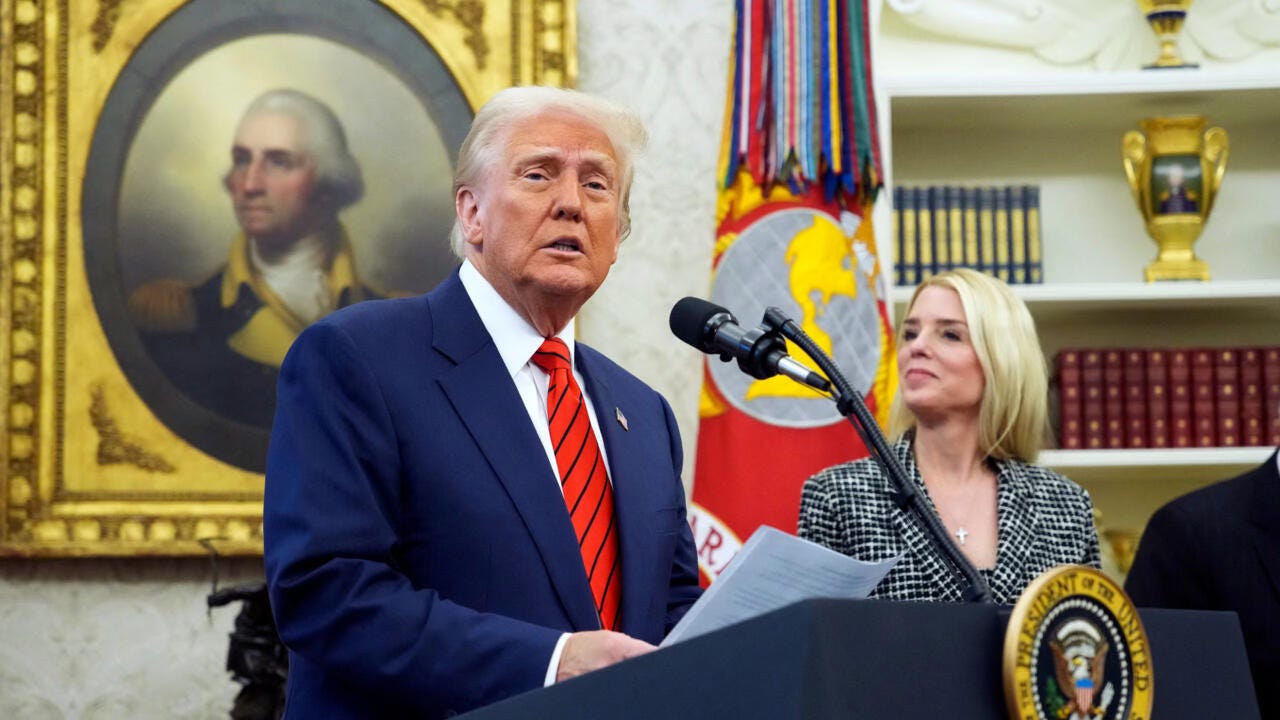The Art of the Deal: Trump defies past paradigms to secure better terms for America
There are no sacred cows with China, Panama, Greenland, Ukraine, Canada, Mexico, and even Gaza.
President Donald Trump's negotiating style, as outlined in his book "The Art of the Deal," is characterized by several distinct strategies and principles that led to his success in business and during his first term in office. In his book, Trump emphasizes the importance of using several malleable instruments, such as leverage, bluffing, and the ability to have flexibility in a negotiation.
Check out The Dossier’s fantastic sponsors, curated exclusively for our readers
Premium Proteins Without Premium Prices
Enjoy high-quality meat and seafood delivered straight to your door with Good Chop. Sourced from American farms and fisheries, every order supports local family farms and independent ranchers across the U.S.
Exclusive for The Dossier Readers: Get free ground beef with every order for the life of membership! Click the link below to claim your offer.
In the early days of his second term, the president has made it his mission to aggressively seek out and deploy what he can control or use to his negotiating advantage on the geopolitical stage. In doing so, he has left behind any sacred cows from previous administrations. President Trump simply refuses to box himself into any ideological corner, as shown Tuesday when he unleashed a series of rhetorical thermonuclear bombs involving the potential redevelopment of Gaza and the Islamic world’s responsibility to take in Palestinian refugees. Under Trump, we are witnessing a pragmatic poilcy approach that shows America remains committed to its traditional allies but, at the same time, will act to pursue tough negotiations with both friends and foes alike.
In the ongoing trade and tariff talks with Canada and Mexico, he has again refused to accommodate past criteria. While past presidents wouldn’t dare use leverage against their allies, President Trump is more than happy to do so when he concludes that there is a political or trade imbalance.
Over the past couple of weeks, President Trump has leveraged the weakness of foreign economies (compared to the United States) and dramatically dialed up the sense of urgency of his counterparts while signaling that he had all the time in the world to make a deal. In short order, Mexico and Canada agreed to send tens of thousands of members of their respective militaries to reinforce the border with the United States and combat illegal migration.
President Trump is leveraging the might of the American economy to obtain maximum leverage in trade negotiations, and it’s breaking all kinds of ideological paradigms. The president is utilizing raw geopolitical power and taking his patented approach of using publicity as a weapon. As commander in chief, he has preferred to negotiate deals in public (a move interpreted as having high integrity, which has helped shore up his base of support) or strategically deploy details to the media to create pressure or to make the deal look more favorable or urgent.
He hasn’t been shy about using a strong bluff or the perception of one. For example, his sudden imposition of tariffs on Canada, in which he projected confidence and exaggerated his position to make Ottawa believe he wasn’t even initially interested in making a deal.
“He appeared to impose tariffs on Mexico and Canada with no real negotiation at all,” NPR reported, “nor any clear demand for what must be done to bring about their removal.”
But at his real estate developer core, Trump believes in making deals rather than just winning arguments. It’s unclear if the Trudeau government interpreted this as the initial salvo in trade talks. Still, nonetheless, it set off a firestorm in the Canadian government, and it probably led negotiating partners to concede more than they otherwise would.
The president has continued to deploy his “The Art of the Deal” framework in negotiations over Greenland, Panama, Ukraine, and now, even Gaza, aiming to maximize his position for what he believes is the best possible outcome for the United States. He is throwing the corporate media and his political opponents in a constant state of madness, as they are seemingly unable or unwilling to explain and understand his negotiating style and strategy.

The 21st century of American policymaking has been attached to many ideological isms, especially regarding trade, the economy, and foreign policy. By acting pragmatically and with a sense of great purpose, Trump's term two is especially unique in that it gives the president the flexibility to keep trading partners and geopolitical antagonists scrambling for answers.



Trump has realized that the rest of the world, knowing that the USA has some weird sense of responsibility for everything, sits and waits to be pampered by Washington DC. The result? Increasing atrophy in Ottawa, Berlin and Copenhagen. He is right to shake up the house. Send them all out to find work. The Bank of Dad is no longer writing open cheques. I speak as a born and educated Brit.
Exactly. Alex Berenson is having a heart attack. I hope Berenson reads this. Really, you just have to break out the popcorn and enjoy the show. Gaza will not be the 51st state. But taking a creative approach to a problem that’s been ongoing for many years is (inexplicably)novel. Getting buy-in from the neighbors is the only way to succeed. 🍿